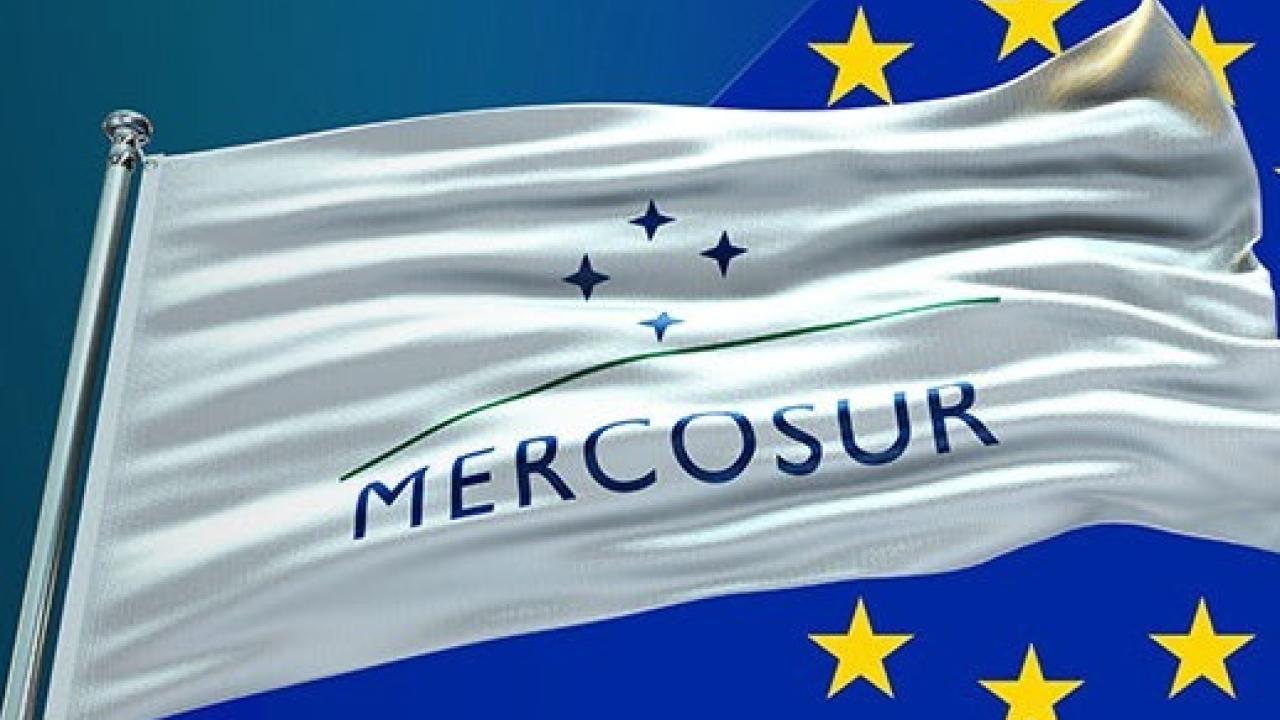
Speaking from Brussels, German Foreign Minister Annalena Baerbock said it was essential for the European Commission to conclude a political agreement this weekend at the Montevideo summit.
German Foreign Minister Annalena Baerbock warned from Brussels on Wednesday that the upcoming summit of Mercosur countries to be held at the end of the week in Montevideo could be the "last chance" for the European Union to close a trade agreement with the Southern Cone bloc, a pact that the parties have been negotiating for more than two decades but which still generates rejection in countries such as France.
"I consider it essential that the European Commission concludes the political agreement with Mercosur. Germany believes that the Montevideo summit on Friday is probably the last chance," Baerbock said in statements to the press upon his arrival at a NATO ministerial meeting.
The German foreign minister thus supports the talks that Brussels, which speaks on behalf of the 27 countries in trade matters, is holding with the Mercosur countries to agree on a declaration attached to the trade treaty that reinforces climate safeguards and the commitment to combat deforestation.
Last week, the negotiating teams of the EU and Mercosur met for several days in Brasilia in what the parties saw as the "last technical round", although an agreement has not yet been reached and community sources have indicated that contacts are still ongoing, although the European negotiators returned from the round over the weekend.
France has made it clear publicly that it considers the agreement "unacceptable" in its current terms and is seeking support among its EU partners to form a blocking minority that could stop the ratification of a possible pact. However, the Community Executive has a mandate adopted by the 27, including France, and wants to exhaust the negotiations to close an agreement for which it has not yet clarified what its legal basis will be and, therefore, whether it would need the adoption of national parliaments or not.
In this context, Baerbock said that in the current "stormy times" it is necessary for Europeans to have "deeper international alliances", especially with democracies in Latin America, "where too much leadership has been left to others lately, especially China."
"It is time to take the alliance with the Mercosur States to a higher level. I consider it essential that the European Commission closes the political agreement on Mercosur," said the German minister, who defended the pact as a "win-win for both parties" and hoped that Brussels would take advantage of its mandate to close it.
POLITICAL CONTACTS Meanwhile, the new Commissioner for Trade, Maros Sefcovic, who took up this portfolio last Sunday, plans to contact his counterparts in the Southern Cone in these first days of his mandate to discuss "at a political level" the state of negotiations, according to the Director General of Trade of the Community Executive, Sabine Weyand.
"It will be a good opportunity to discuss the technical and political aspects of the negotiations for a trade agreement," EU sources told Europa Press, without giving further details on the next steps in the negotiation rounds, although they point to "constructive progress" in the latest round.
Valdis Dombrovskis, the European Commission's Vice-President for Economic Affairs and Trade, said last week after a meeting in Brussels with European ministers that he expected this round to be the final one before being able to raise the issue to a political level, aware that the difficulties of the pact will require negotiations at the highest level.
Countries such as Spain and Germany strongly defend the need to achieve a free trade agreement with the Mercosur countries due to its benefits for the EU and to keep up with rival powers such as China; but they are faced with the outright rejection of France and the reservations of other partners such as Poland, the Netherlands and Ireland.
Although the agreement has been on the negotiating table for more than two decades, it remains unclear what the legal basis of the Treaty that Brussels is considering before presenting it to European governments will be, although it is assumed that it is working on a trade agreement within European competence that does not require ratification by the 27 national parliaments to avoid possible vetoes or new delays.
However, the agreement will need to be approved by the EU Council by a qualified majority of member states and, after the debate held by the ministers last Thursday, various European sources consulted by Europa Press assure that Paris has not yet managed to gather a sufficient blocking minority, although countries such as Ireland or Poland have publicly said that they have reservations and others such as Belgium are pointing to an abstention because their government is in office.









